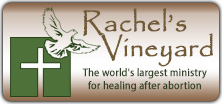My dear People of God,
You and I are God's handiwork. We are His creation. In the words of an old expression, "God doesn't make junk." Indeed! The Creator has fashioned us with a physical body and an immortal soul. And each of us carries the imprint of the Divine Artist in his or her own way. Each of us is unique, which I think is a marvelous testimony to God's artistry. We are each different, yet all belong to the human family. We are all made for great things, not as the world defines greatness but as God sees it. This is one way of saying that human beings possess a God-given dignity.
 As God's created handiwork, we respond to this dignity by living good and moral lives. "For God did not call us to impurity but to holiness." St. Paul writes, "This is the will of God, your holiness" (I Thessalonians 4:3). St. Paul continues, "Therefore, whoever disregards this, disregards not a human being but God, who also gives his holy Spirit to you" (I Thessalonians 4:7-8).
As God's created handiwork, we respond to this dignity by living good and moral lives. "For God did not call us to impurity but to holiness." St. Paul writes, "This is the will of God, your holiness" (I Thessalonians 4:3). St. Paul continues, "Therefore, whoever disregards this, disregards not a human being but God, who also gives his holy Spirit to you" (I Thessalonians 4:7-8).
All too obvious in our modern world are the results of ignoring and setting aside this truth of the call to holiness. Instances of violence, sexual abuse, and human trafficking only increase, as we watch our families fall apart and our young laid waste by addictions of every sort, including pornography. If we are to be known by our fruits (cf. Matthew 7:20), we can no longer be known as a Christian society. The call to holiness requires a response from us.
We either respond to the call to holiness and live that dignity, or we do not. Our happiness depends on our appreciation of this dignity. This is a truth that cannot be overstated: Without an appreciation of our dignity and without growth in our ability to live this dignity, we cannot be happy. Happiness would remain elusive, and we frustrated.
Purity is necessary. We cannot live productive, other-directed lives without it. As the sixth Beatitude of the Sermon on the Mount teaches us, "Blessed are the pure of heart, for they shall see God" (Matthew 5:8). The Catechism of the Catholic Church explains this Gospel teaching by saying that "[p]urity of heart is the precondition of the vision of God" (CCC, 2519). Why is this so? Because purity helps us to see as He sees, to accept others as our neighbors, and to respect our bodies and the bodies of others as temples of the Holy Spirit (cf. CCC, 2519).
Where must we begin? I would recommend these steps. First, we begin by examining our consciences. Have we accepted promiscuity as some sort of "new normal"? Have we complicated our lives and endangered our families and our immortal souls with the deceit that accompanies sexual license? From whom do we think we are hiding when we secretly view pornography or engage in some concealed sexual escapade? God sees all. And for this reason, He speaks to us in our examination of conscience by showing us the truth and calling us to conversion. Remember always: Truth sets us free (cf. John 8:31-32).
Objective truth exists. It is a dangerous and pervasive error in our modern world to think that good and evil, right and wrong, are relative judgments or questions of taste. If the truth is one thing for one person and not another, then it is not truth. That is opinion. Remember too that there are actions and activities that are intrinsically evil and that no court or elected body, however noble in principle, can make right. Truth corresponds to reality, and it is reality that we need to grasp and reality that is in jeopardy when we relativize truth.
Second, we go to confession, and not just once. If we are embedded with a habit, especially one of the flesh, then we must not be discouraged. If we fall again, then we must return to the Lord, repent, and begin again. Only with firm resolution and God's Grace will we discipline our wills to act in accord with the Divine Will. We must, however, not give up. We must keep trying. Pray always. Never surrender.
Third, we must practice modesty. Purity requires it. Only with modesty is the true love between persons protected (CCC, 2519). Modesty may require us to cleanse our environment. How can modesty survive when we are surrounded by permissive behavior, inappropriate entertainment, and suggestive dress? In effect, modesty is only possible with self-control, which demands that we know ourselves as best we can and know and appreciate right from wrong.
Fourth, we should have a program of life. This program must include time for prayer, constructive recreation, attending to the duties of our state of life, providing for our families, nurturing wholesome friendships, and worshipping God. Without a program of this sort we are lost, like a boat at sea without a rudder. To set a course, chart a journey, one needs not only a destination but also a good map. If we are to make progress toward our goal of purity of heart, a program of life is the map which ensures that every day we move closer to our destination.
Finally, we must entrust ourselves to God. He is a loving Father. His Word Incarnate, Jesus Christ, showed only mercy to those who turned to Him in repentance. However, here special emphasis is needed. He never left anyone the same who discovered Him and His powerful Love. A change took place. Think only of the Samaritan woman (John 4:4-42), the woman caught in adultery (John 8:1-11), the father of the son possessed by a demon (Luke 9:37-43), the synagogue official's daughter and the woman with a hemorrhage (Mark 5:21-43) - to name only a few. We must call out to the Lord in prayer as did these helpless people: "I do believe, help my unbelief' (Mark 9:24); "Lord, save us! We are perishing!" (Matthew 8:25); "Have pity on me, Lord, Son of David!" (Matthew 15:22); "Lord, please let me see" (Luke 18:41). Then, a startling thing will happen. The Lord will turn and look upon us and our need. Actually, He was looking upon us all along, but now we awake to His gaze. What happens next is His marvelous work, His not ours. He will do it in His own way, in His own good time. All we need do is persevere at entrusting ourselves to Him. The Gospels are filled with these accounts of healing. I have seen them myself. Every priest has. And with a crowd of witnesses, we were "all astonished by the majesty of God" (Luke 9:43).
To help us implement the steps outlined above and to make progress in our pursuit of purity of heart, I have asked that all parishes of the Diocese observe what we are calling Safe Haven Sunday on this first weekend of Lent. Inspired by the Bishops of the United States in their pastoral letter "Create in Me a Clean Heart," our parishes will provide resources to support individuals, marriages and families in making all homes a safe haven. One of these resources is a book entitled "Equipped-Smart Catholic Parenting in a Sexualized Culture" provided by Covenant Eyes. Prayer cards and information on support groups will also be available to you after all Masses. Because we live in a digital age, there is also information on practical tips for adults to create a safer digital environment. Information on and access to this important resource will be provided by your pastor at all Masses. Please consult your parish bulletins for additional help.
Asking our Blessed Mother's intercession so that we all grow in a deep appreciation of our dignity as God's creation, I remain with prayers for you and your families,
Devotedly yours in our Lord, 
![]() Glen John Provost
Glen John Provost
Bishop of Lake Charles
















